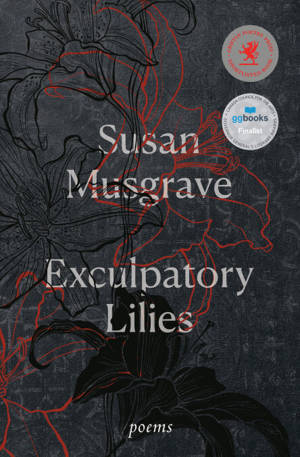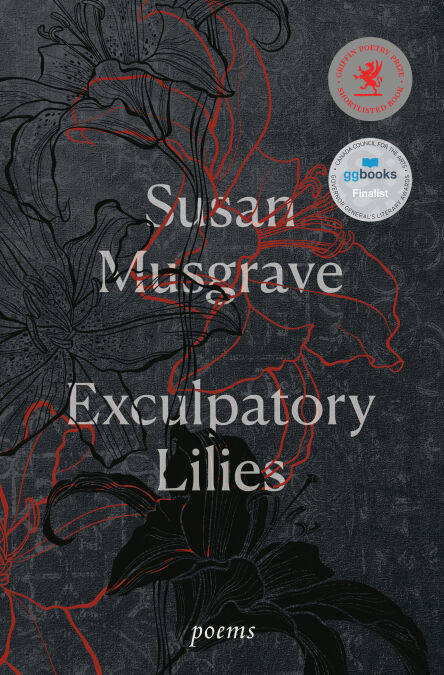
Bedankt voor het vertrouwen het afgelopen jaar! Om jou te bedanken bieden we GRATIS verzending (in België) aan op alles gedurende de hele maand januari.
- Afhalen na 1 uur in een winkel met voorraad
- In januari gratis thuislevering in België
- Ruim aanbod met 7 miljoen producten
Bedankt voor het vertrouwen het afgelopen jaar! Om jou te bedanken bieden we GRATIS verzending (in België) aan op alles gedurende de hele maand januari.
- Afhalen na 1 uur in een winkel met voorraad
- In januari gratis thuislevering in België
- Ruim aanbod met 7 miljoen producten
Zoeken
Omschrijving
2023 Governor General's Literary Award for Poetry Finalist
2023 Griffin Poetry Prize Finalist
A Globe and Mail Top 100 Book
2022 Walcott Prize Shortlist
From the award-winning poet known for her bracing honesty and sharp yet compassionate gaze, here is a new collection of poems that explore life, marriage, addiction, death, and heart-wrenching grief.
If grief is the willingness to be claimed by a story bigger than ourselves, Susan Musgrave writes, “in that / tender wavering, I let grief in.”
"Writing about grief or tragedy is tricky. Hard to meet it at a heart-level without being effusive; hard to meet it at a brain-level without being cold. Hard not to make it about ourselves. Hard to meet it at a visceral level because it can take us out at the knees," wrote author Carrie Mac, responding to the death of Musgrave’s partner, Stephen Reid, in 2018. Following this traumatic loss, in September 2021 their daughter, Sophie, died of an accidental overdose after a twenty-year struggle with addiction.
But to say this is a collection solely about grief would be to miss the whole nature of Musgrave’s voice and sensibility. Wit is one counterpoint; the natural world is another. The poems share a landscape whose creatures, minutely observed, wild and tame—the winged ones most of all—dance attendance on the helplessness of our brief and mystifying human lives. Throughout Exculpatory Lilies, Musgrave’s alertness to even the most desolate places makes her personal sorrows astonishingly potent; and her scrutiny of language, and emotions, makes shot silk out of sackcloth and ashes.
2023 Griffin Poetry Prize Finalist
A Globe and Mail Top 100 Book
2022 Walcott Prize Shortlist
From the award-winning poet known for her bracing honesty and sharp yet compassionate gaze, here is a new collection of poems that explore life, marriage, addiction, death, and heart-wrenching grief.
If grief is the willingness to be claimed by a story bigger than ourselves, Susan Musgrave writes, “in that / tender wavering, I let grief in.”
"Writing about grief or tragedy is tricky. Hard to meet it at a heart-level without being effusive; hard to meet it at a brain-level without being cold. Hard not to make it about ourselves. Hard to meet it at a visceral level because it can take us out at the knees," wrote author Carrie Mac, responding to the death of Musgrave’s partner, Stephen Reid, in 2018. Following this traumatic loss, in September 2021 their daughter, Sophie, died of an accidental overdose after a twenty-year struggle with addiction.
But to say this is a collection solely about grief would be to miss the whole nature of Musgrave’s voice and sensibility. Wit is one counterpoint; the natural world is another. The poems share a landscape whose creatures, minutely observed, wild and tame—the winged ones most of all—dance attendance on the helplessness of our brief and mystifying human lives. Throughout Exculpatory Lilies, Musgrave’s alertness to even the most desolate places makes her personal sorrows astonishingly potent; and her scrutiny of language, and emotions, makes shot silk out of sackcloth and ashes.
Specificaties
Betrokkenen
- Auteur(s):
- Uitgeverij:
Inhoud
- Aantal bladzijden:
- 112
- Taal:
- Engels
Eigenschappen
- Productcode (EAN):
- 9780771099304
- Verschijningsdatum:
- 5/09/2022
- Uitvoering:
- E-book
- Beveiligd met:
- Adobe DRM
- Formaat:
- ePub

Alleen bij Standaard Boekhandel
+ 18 punten op je klantenkaart van Standaard Boekhandel
Beoordelingen
We publiceren alleen reviews die voldoen aan de voorwaarden voor reviews. Bekijk onze voorwaarden voor reviews.









